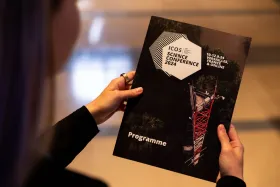
Do you want to work with topics related to climate change? ICOS, the Integrated Carbon Observation System, measures greenhouse gases to better understand climate change. The data is being used by scientists as well as by governments and international organisations. ICOS is publicly funded by its…
Read more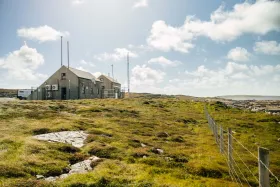
The World Meteorological Organization’s Global Atmosphere Watch (WMO GAW) published new measurement guidelines for observations of carbon dioxide (CO2), methane (CH4) and nitrous oxide (N2O) at GAW stations.
These guidelines have emerged to help address the…
Read more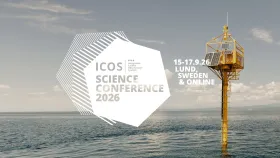
We are pleased to share that the Call for Abstracts for ICOS Science Conference is now open! The abstract submission deadline is 6th March 2026.
ICOS Science Conference 2026 takes place 15-17 September 2026 in AF Borgen in Lund, Sweden, and online. The overarching theme of this year's…
Read more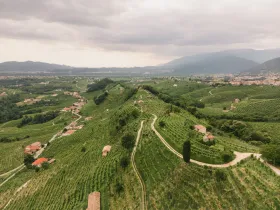
The year 2025 saw ICOS data being used in a broad range of scientific studies. Researchers used ICOS data, tools and expertise to address all kinds of scientific questions, from improving estimates of urban and national greenhouse gas emissions, to comparing instruments for ocean carbon…
Read more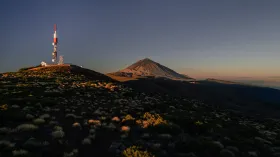
In 2025, the ICOS-coordinated Horizon Europe project New Users for a Better ICOS (NUBICOS) made great progress in consolidating ICOS for the future.
Below are a few highlights from 2025.
First results from flask sampling comparison at Mace HeadThe first results are in…
Read more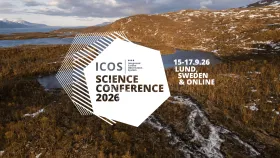
We are pleased to announce the sessions for ICOS Science Conference 2026! The conference takes place 15-17 September 2026 in Lund, Sweden and online. The overarching theme of the conference is “Science, Data, Services: Together for Climate Action”
“We received a record-high…
Read more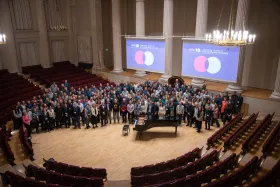
The ICOS ERIC 10-year anniversary took place in Helsinki, Finland, on 25–27 November 2025. The week brought together scientists, technicians and other key staff from across the ICOS community, along with funders, collaborators and invited guests.
Below are some key highlights from the…
Read more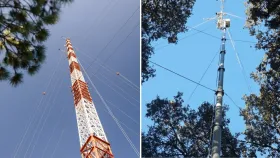
After completing ICOS’ thorough standardisation and quality assurance process, two additional stations — Capodimonte Ecosystem station in Italy and El Arenosillo Atmosphere station in Spain — have now received the status of ICOS labelled stations. Their labelling was confirmed by the ICOS…
Read more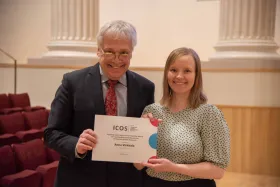
ICOS can announce that Dr Anna Virkkala is the first recipient of the ICOS Ingeborg Levin Early Career Scientist Award for Outstanding Greenhouse Gas or Related Isotope Research.
Anna Virkkala received the award on 27 November 2025 during the ICOS 10 Year Anniversary Seminar. She…
Read more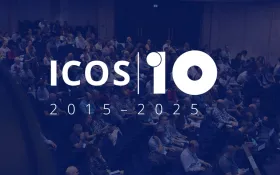
This year marks ten years since ICOS became a European Research Infrastructure Consortium (ERIC). To celebrate this milestone, a week of events will take place from 25-27 November 2025 at the University of Helsinki Main Building, Finland.
The programme includes an Info Day open to the ICOS…
Read more